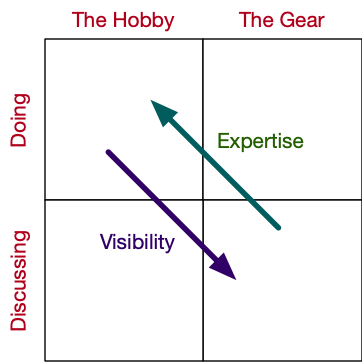Too many people fetishize Luhmann and his system. Yes he wrote a lot and yes he was productive, but was he as influential as any of the thousands upon thousands of writers and academics who used broadly similar methods? A lot of Luhmann's productivity boils down to how one chooses to define productivity. As an example: Isaac Newton, John Locke, Taylor Swift, and even Eminem had broadly similar not taking methods and though their note corpuses are dramatically smaller than Luhmann, their influence on art, culture, and humanity dramatically exceeds that of Luhmann.
I would posit that most serious note takers' productivity boils down to their utter simplicity and easy ability to replicate that method for decades. The largest part of Luhmann's productivity was that he not only had a simple system, but that he was privileged to use and practice at full time for the length of his academic career. (He also didn't face the scourge of peer-review that most academics are forced to run today.)
As an example of someone whose methods were very similar to Luhmann's, but who was dramatically more productive (from a generic definition of it), take a look at S. D. Goitein who wrote out about 1/3 the number of slips that Luhmann did, but used them to write almost a 1/3 more articles and books! Luhmann: 90,000 slips, 550 articles, 50 books versus Goitein: 27,000 slips, 669 articles, 69 books. Interestingly Goitein's method of organization was much closer to the topical organization to the vast majority of zettelkasten/card index users (as well as Obsidian users) than to Luhmann's alpha-numeric organizational method.
There isn't nearly enough scale in (psychology, cognitive psychology) research to reasonably compare analog versus digital methods, much less enough research to distinguish between methods at the scale of individual people. Everyone will respond differently to different modalities because the breadth of neurodiversity within the population. The psychology research you're citing is painfully, painfully thin and is far from reaching the level of replicability.
As a result, the best practicable advice to any individual is to experiment for themselves and choose the method they feel works best for them from a sustainability perspective.
reply to u/Quack_quack_22 at https://www.reddit.com/r/ObsidianMD/comments/1doqgar/why_can_luhmann_manage_information_better_than/
I found that Luhmann's information management system is not more complicated, but it is more effective than the influencers talking about taking notes on Obsidian. Because he took notes by hand:
Studies show that taking notes by hand has a positive impact on many different brain areas.
Writing by hand is slower than typing:
The slowness of handwriting helps Luhmann consider and select important words to write in literature notes. -> he will remember better
the brain is relaxed -> the brain is more creative: when writing literature notes -> he will come up with more ideas so he can write permanent notes.
To put it more simply. Luhmann takes notes to find as many ideas as possible to write in permanent notes, then these permanent notes will become a complete essay after Luhmann connects them together. And writing citations, summaries of content and citing sources in literature are just proof that his ideas are correct (ironically, people who make content about obsidian (also Tiago Forte) just encourage copy-paste).
Thus, copying highlights from Kindle to Obsidian becomes useless if you don't understand anything about highlights and don't get any ideas from them. I don't claim that typing makes us stupid, because people who write on computers have a habit of carefully correcting spelling and arguments, which helps them think more deeply = more smart.
Sources: https://www.forbes.com/sites/nancyolson/2016/05/15/three-ways-that-writing-with-a-pen-positively-affects-your-brain/
https://www.psychiatrist.com/news/handwriting-shows-unexpected-benefits-over-typing/
P/s: I think this guy is very precise about the zettelkasten method: he takes notes on paper like Luhmann to get ideas, then he just starts copying them into Obsidian. (https://www.youtube.com/watch?v=FrvKHFIHaeQ&t=0s)

